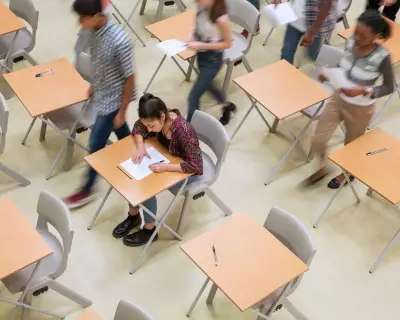
As the debate over reading standards in British schools intensifies, new evidence suggests that the government's focus on increased testing may be missing the mark entirely. Rather than improving literacy, experts warn that excessive assessment could be doing more harm than good.
The Testing Trap: Why More Exams Don't Equal Better Readers
Educational researchers have identified a crucial flaw in the current approach: testing measures reading ability but doesn't teach it. The constant pressure of assessments can transform reading from a joyful activity into a stressful chore, particularly for struggling readers.
"We're confusing assessment with instruction," explains one literacy specialist. "Testing tells us where children are, but it doesn't help them move forward. What students need is quality teaching, not more exams."
What Actually Works: Evidence-Based Strategies for Literacy
Research points to several proven methods that genuinely improve reading outcomes:
- Systematic phonics instruction: Providing structured, explicit teaching of sound-letter relationships
- Developing reading fluency: Regular practice with appropriately challenging texts
- Building vocabulary: Explicit teaching of new words across all subjects
- Comprehension strategies: Teaching children how to understand and analyse what they read
The Power of Reading for Pleasure
Perhaps the most overlooked factor in literacy development is fostering genuine enjoyment of reading. Children who read for pleasure consistently outperform their peers, regardless of their socioeconomic background.
"When children discover books they love, reading stops being work and becomes a gateway to new worlds," says a primary school headteacher. "This intrinsic motivation is far more powerful than any test result."
A Call for Balanced Literacy Policies
Education advocates are urging policymakers to shift focus from assessment to support. This includes:
- Investing in teacher training for reading instruction
- Providing diverse, engaging classroom libraries
- Allowing time for independent reading during school hours
- Supporting struggling readers with early intervention
The path to better literacy isn't through more testing, but through better teaching, adequate resources, and reigniting children's natural curiosity about stories and information. As the evidence clearly shows, when we make reading meaningful and enjoyable, improved skills naturally follow.





